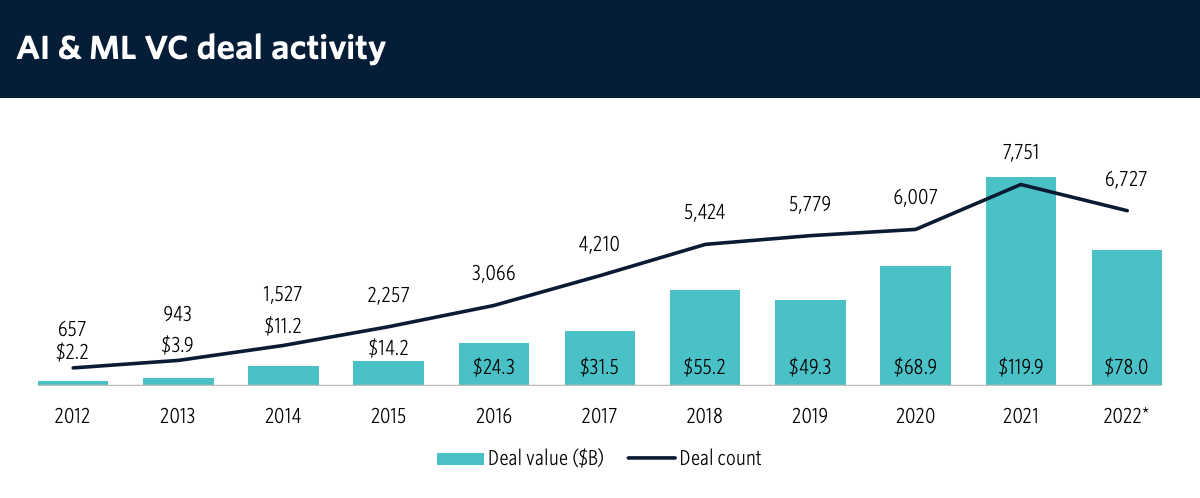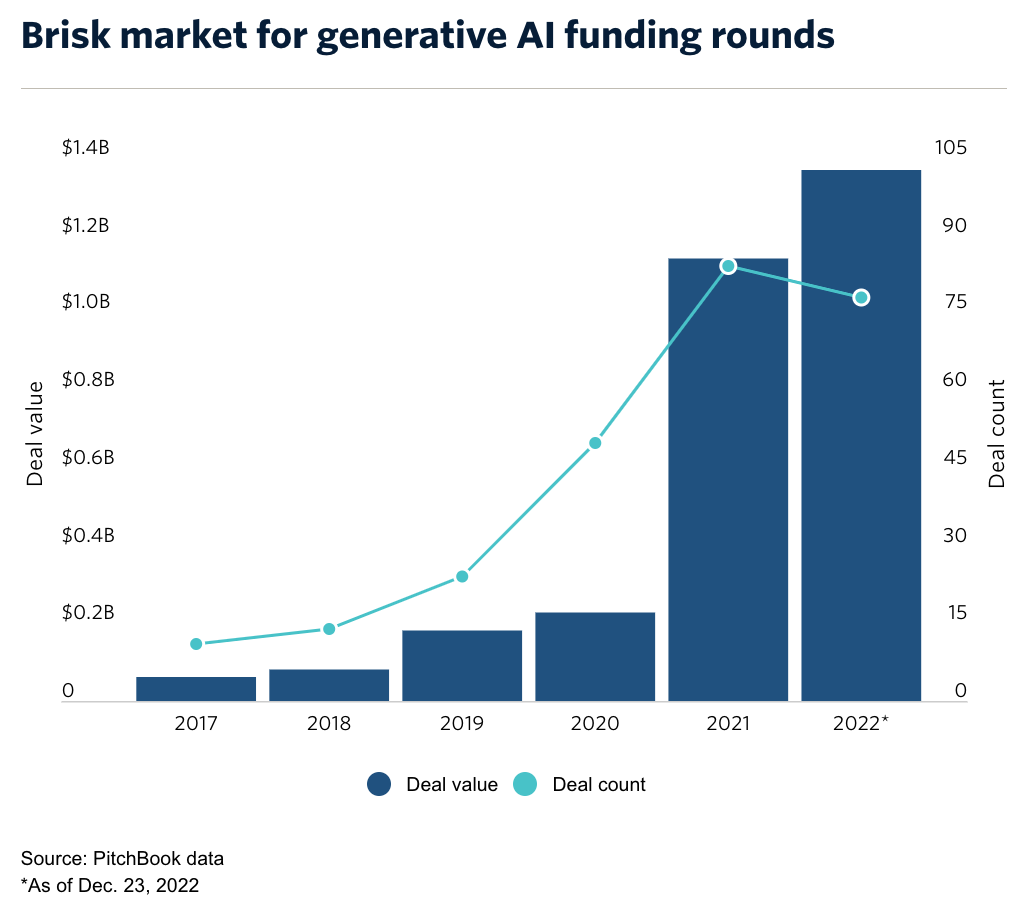Media conglomerate, finance information company and business software developer Bloomberg is building a generative artificial intelligence (AI) model for the finance industry, following on the heels of technology companies including Microsoft, Google and Salesforce that have recently kickstarted their own generative AI projects.
Generative AI is a category of AI algorithms that are capable of generating new and realistic content including text, images and audio, based on the data they have been trained on. These models, which are able to carry on sophisticated conversations with users, accurately answer questions and complete a wide range of tasks, including creating software and formulating business ideas, have risen to popularity over the past months after OpenAI’s AI chatbot ChatGPT went viral.
Freshly unveiled BloombergGPT is 50-billion-parameter generative AI model that’s been trained on a wide range of financial data to support tasks within the financial industry.
Bloomberg said it plans for its new model to assist it in improving existing natural language processing (NPL) tasks, including sentiment analysis, named entity recognition, news classification, and question answering, among others.
It also envisions BloombergGPT as a new capability and value-added feature in its product offering. The model would bring about new opportunities in making use of the vast quantities of data available on the Bloomberg Terminal to “better help the firm’s customers”, Bloomberg said in a statement, hinting at potential integration into Bloomberg systems.
Outperforming existing models
A research paper released on March 30, 2023 and which details the development of BloombergGPT, shares results of early testing of the model, noting that BloombergGPT, which has been trained on both finance-specific and general data sources, was able to outperform similarly-sized open models on financial NPL tasks “by a large margin” while performing strongly on general NPL benchmarks.

Performance of BloombergGPT in finance-specific and general-purpose NLP tasks compared with other models, Source: Bloomberg, March 2023
BloombergGPT is the first model to be trained on both domain-specific and general data sources, the paper says. Bloomberg supports a very large and diverse set of tasks, which are served by a general model, it says. At the same time, the vast majority of its applications are within the financial domain, better served by a specific model.
For that reason, the company opted for a mixed approach, which it said is better suited for its product offering and which, down the line, will allow Bloomberg to tackle many new types of applications as well as deliver much higher performance out-of-the-box than custom models, and in a faster time-to-market fashion.
The AI chatbot frenzy
Generative AI has been a hot topic in the tech sector ever since OpenAI’s ChatGPT went viral on November 30, 2022.
The AI chatbot, which has been praised for its versatility, intelligence, and ability to engage in human-like conversations, surpassed one million users in just five days, and in January, it surged past the 100 million monthly active users mark, becoming the fastest-growing consumer app in history, according to analysts at Swiss bank UBS.
The rise of ChatGPT has sparked a frenzy in the tech community and prompted most industry leaders to ramp up AI development.
In January, Microsoft invested a staggering US$10 billion in ChatGPT creator OpenAI, a deal that marked the third phase of the partnership between the two companies and which followed previous investments from the tech giant in 2019 and 2021.
The capital infusion was followed shortly after by the announcement that Microsoft’s Bing search engine and Edge web browser will be enhanced with AI chatbots.
Most recently, news broke that Google had invested almost US$400 million in Anthropic, an AI company that’s testing a rival to ChatGPT called Claude.
Google has been working on Bard, a conversational AI service that’s powered by the firm’s Language Model for Dialogue Applications (LaMDA) and which uses information found on the web to formulate responses.
Google recently opened up access to Bard, allowing users to join a waitlist to test out the feature. The company said it will start rolling out the tool in the US and the UK, and plans to expand it to more countries and languages in the future. It is also looking to bring AI to its productivity tools, including Gmail, Sheets and Docs.
AI funding surges
Rapid advancement in AI and booming adoption of related technologies have captured the attention of venture capital (VC) investors globally.
In 2022, AI and machine learning (ML) startups raised US$78 billion in VC funding, data from VC research firm Pitchbook show. The sum represents a 35% decline compared with 2021 but still exceeds 2020’s total, showcasing that AI and ML proved resilient despite the global funding downturn.

AI and ML VC deal activity, Source: Q4 2022 Artificial Intelligence and Machine Learning Report, Pitchbook, March 2023
Although AI and ML funding declined last year, generative AI startup VC investment continued their upward trend, reaching a new record of US$1.37 billion in 2022, according to Pitchbook data. The amount represents a 20% increase compared with 2021’s US$1.14 billion, and a nearly 500% increase compared with 2020’s US$230 million.

Generative AI funding rounds, Source: Pitchbook, Dec 2022
Last month, Salesforce announced a US$250 million fund for investing in generative AI startups, unveiling at the same time new investments into Cohere, a Canadian startup that specializes in large language models; Hearth.AI, an AI platform intended to provide semantic network search; You.com, a search engine that summarizes web results using website categories; and Anthropic.
Featured image credit: edited from Freepik






